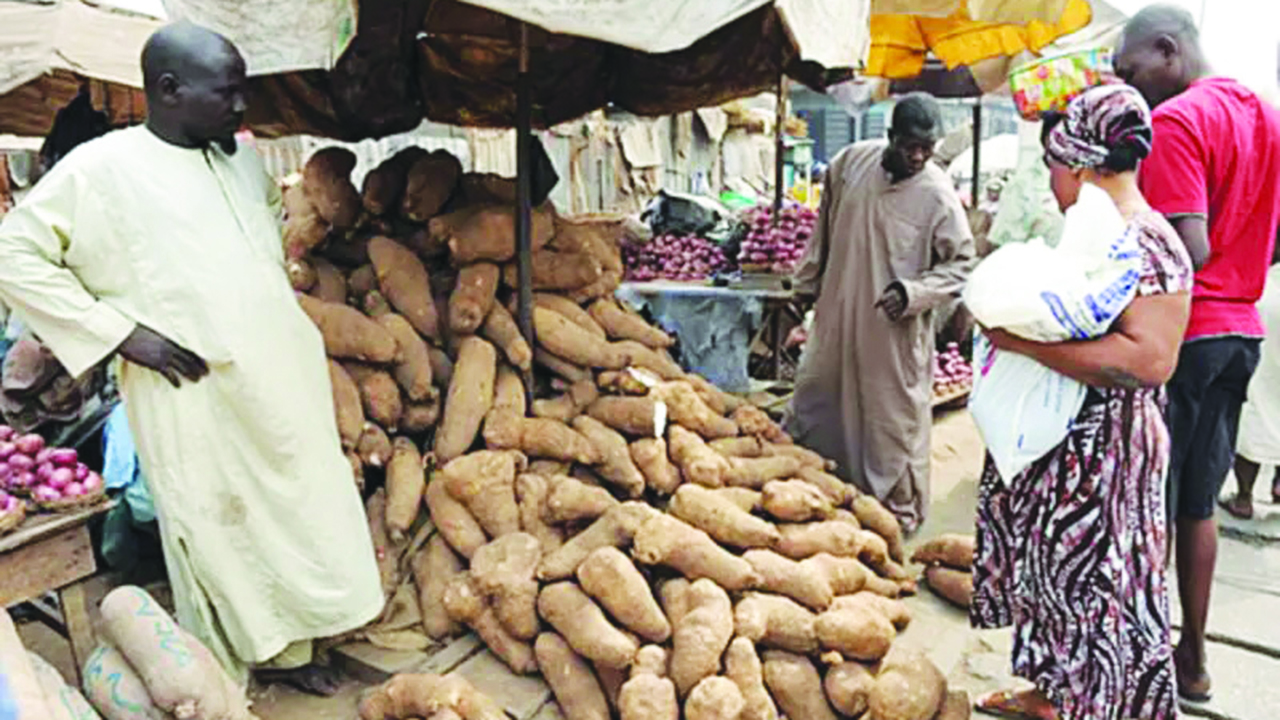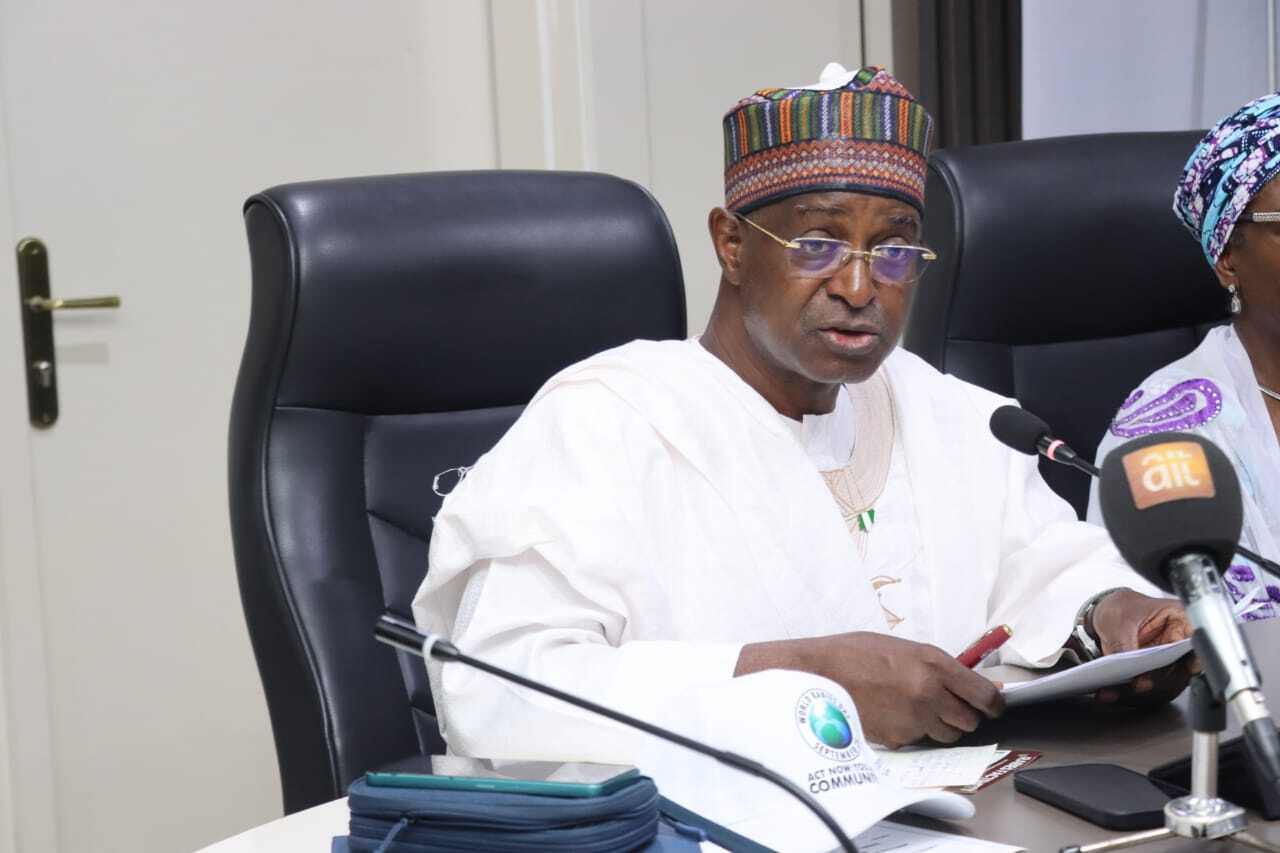 . Productivity Under Threat – Dikwa
. Productivity Under Threat – Dikwa
. It Signals Lack Of Real Commitment To Addressing Agric Needs – Olajide-Taiwo
. Budgetary Commitment Misaligns With Sector’s Pressing Needs –Aiyeola
. A Clear Weaponisation Of Hunger – Onyaga
Recently, the United Nations World Food Programme (WFP) predicted that 33 million people will face severe food crisis in Nigeria in 2025.
This figure, which indicates a sharp increase from the 25 million people, who are currently food insecure, not only poses a serious food risk to a country, which prides itself as the giant of Africa, it also forecloses a possible end to the present food crisis.
While reports have it that the record inflation, exacerbated by current administration’s economic policies, climate shocks and ongoing conflicts are responsible for the food crisis, it was learnt that the most populous African nation had never had it so bad, with so many people without food.
The report recommended immediate support to avert a potential food and nutrition disaster, where the combination of triple-digit increases in food prices, the aftermath of devastating floods, and 15 years of insurgency in the northeast are stretching families to the limit.
“Our collective response must be immediate and massive in scale. It must span prevention, mitigation, and life-saving assistance. Preventative action in rural areas can halt the growth of hunger, providing the most vulnerable farmers with cash, seeds and fertiliser. Mitigation will reduce the scale of further crises. Urgent support in nutrition, health support, food supply and WASH will reduce the depth of the crisis,” the report read.
With this reality, many had hope that the sad reality would have evoked pity from the Federal Government and other stakeholders to initiate policies and interventions to put the situation under control to a large extend, but the revelation that the Federal Government allocated a meager two per cent to the agric sector in the 2025 budget, forecloses hope of any redemption to the lingering food crisis.
From the N49.7tr budget presented by President Bola Ahmed Tinubu to the joint session of the National Assembly on Wednesday, agriculture got a paltry N827b or 1.7 per cent of the budget, which is not different from the historical trends.
The budget prioritised defence and security, which got N4.91tr allocation. Infrastructure gets N4.06tr, while health and education get N2.48tr and N3.52tr respectively.
This untoward development, which follows the historical trends in the past 10 years on this sector, considered as the mainstay of the economy, is a clear departure from the Malabo declaration, which recommended at least 10 per cent to national budget to agriculture.
The Malabo Declaration is a commitment made in June 2014 at the 23rd Ordinary Session of the African Union Assembly in Malabo, Equatorial Guinea, by African Heads of State and Government to spend at least 10 per cent of their national budgets on agriculture.
The declaration’s goal was to transform Africa’s agriculture to improve livelihoods and shared prosperity. The declaration also includes commitments to ending hunger by 2025, halving poverty by 2025, boosting intra-African trade in agricultural commodities, enhancing resilience in livelihoods and production systems, and mutual accountability to actions and results, among others.
Owing to the fact that public expenditure on agriculture is considered an important strategy for poverty reduction and structural transformation in developing countries. However, most African countries have not yet reached the 10 per cent target.
Reports have it that in the last 10 years, the country’s allocation to the sector has been hovering between one and two per cent of the total spending envelope.
As the country’s inflation tilts towards 40 per cent, majorly due to the food crisis in the country, experts are expressing worries that food crisis may escalate with the paltry N827b allocation for the sector.
The Chief Executive Officer, Green Sahara Farms, Plateau State, Suleiman Dikwa, said the two per cent allocation to agriculture raises significant concerns, particularly in light of projections indicating a worsening food crisis.
“Given the critical role that agriculture plays in ensuring food security, economic stability, and rural livelihoods, such a minimal allocation appear inadequate to address the challenges we face.
“The implications of this budgetary decision are profound. With the ongoing effects of climate change, desertification, and other environmental pressures, agricultural productivity is under threat. For regions like Borno State and other regions, where my company operates, the stakes are even higher. The dwindling resources and increasing food insecurity necessitate a more substantial investment in agricultural development,” he said.
Dikwa stressed that if the current administration genuinely aims to boost agriculture, it must translate promises into actionable funding and policies. “A mere two per cent allocation signals a lack of commitment and may lead to further marginalisation of the agricultural sector.
“To effectively combat the looming food crisis, it is essential that the government prioritises agriculture through increased funding, infrastructure development, and support for sustainable practices.
“There is need for the government to recognise the urgency of the situation and take decisive action to bolster agricultural investment. Otherwise, the promise of enhancing the sector may indeed be perceived as mere lip service, leaving vulnerable populations at greater risk.”
The Executive Secretary, Produce Export Development Alliance (formerly AFGEAN) and CEO, Post-Harvest Africa, Adetiloye Aiyeola, regretted that the implications of the paltry allocation for the food sector are profound.
He said: “Allocating only two per cent of the 2025 budget to agriculture raises significant concerns, especially given projections that 33.1 million Nigerians will face acute food insecurity during the upcoming lean season.
“I’m concerned that this modest allocation may not suffice to address the multifaceted challenges, such as post harvest loss, insecurity, and economic instability that can impede agricultural productivity and food distribution.”
While noting that the current administration has pledged to revitalise agriculture, he however, said the current budgetary commitment appears misaligned with the sector’s pressing needs, especially given projections of a worsening food crisis.
“Insufficient funding could hinder, even roll back efforts to enhance food production, improve supply chains, and support farmers, thereby exacerbating the food crisis. To effectively combat food insecurity and fulfill its promises, the government should consider increasing agricultural investment to a level that reflects the sector’s critical importance to national well-being.”
On his part, the Initiator/CEO, Betterment Hub and LOFIM Agribusiness, Ibadan, Oyo State, Dr Lawrence Omotayo Olajide-Taiwo, said: “The allocation of only two per cent to the agricultural sector is alarmingly inadequate and reflects a concerning disregard for food security, which is vital to national security.
“Historically, the Nigerian government has failed to honour its commitment made in 2014 when all Africa’s Heads of State promised to dedicate at least 10 per cent of the budget to agriculture. Despite the current administration’s efforts to connect agriculture with security—evidenced by the rebranding of the ministry to the Federal Ministry of Agriculture and Food Security and the establishment of the Ministry of Livestock Development—the low allocation signals a lack of real commitment to addressing agricultural needs.”
Dr. Olajide-Taiwo, noted that given the projections of a worsening food crisis in the country in 2025, the National Assembly must reassess the budget and significantly enhance funding for the sector.
The Founder of Izanu Africa, Comfort Onyaga, who noted that the budgetary allocation is demoralising, said: “I personally can see clearly that the current administration is only paying lip service to agriculture, just in a bid to ensure that hunger becomes a weapon. This is a clear weaponisation of hunger.
“Historically hunger has been used by the political class as a tool to subdue the population and ensure they are dependent on state assistance. And guess what, those state assistance are not substantial enough to address hunger in Nigeria.
“How do you allocate two per cent of the country’s budget to agriculture? And yet the same administration declared state of emergency on agriculture and food insecurity.
How do you allocate two per cent only against the backdrop of the worsening food crisis and the projection considering also that agriculture is supposed to be the backbone of Nigeria’s economy? This is the primary source of livelihood of majority of Nigerians, especially those in rural communities.”
Onyaga stressed that considering the fact that the country is already battling with climate change and other challenges, and other variables that are interfering with food production – insecurity in the north and all of that, the poor policy implementation on fuel subsidy removal that has impacted the agricultural sector where there is inflation in the cost of everything – fertiliser and others.
“Does the current administration expect Nigerians to start eating grasses in 2025? How exactly are families expected to survive? How would people afford three square meals in a day in 2025? It’s far below the 10 per cent recommendation by the Maputo declaration 2014. And remember that there was a reaffirmation of this commitment in the Malabo declaration in 2023 where the African Union, member states committed to allocating 10 per cent of their national budget to agriculture.
“This allocation is grossly inadequate. With the worsening food insecurity projected for 2025, we are not ready. We are not ready as a country. It’s ridiculous. What a shame that we do not have a government who is sensitive to the plight and current condition of the people.”
Continuing, Onyaga, said by implication, there’s going to be increased dependency on imports because if the cost of food production becomes very high in Nigeria, people will rely more on food importation because a lot of this food will be cheaper.
“But my problem now is the food that would be imported into Nigeria would actually not be quality food. Who is even checking to ensure that these food products are healthy and nutritious to meet the dietary requirements of Nigerians?
“Who is checking? And by the way, not all the imported food would be cheap. Some will be expensive, but we have countries that actually have some of their foreign products that are actually cheaper than the local products, because they are substandard products.
“Obviously, food price inflation is just going to skyrocket. There’s already hyperinflation. I don’t know what to call the level of inflation that Nigerians will be experiencing next year. Nigeria has a very beautiful agricultural, strategy and plan, yet there’s no investment. There’s no prioritisation of the agricultural sector to ensure that we have adequate investment in the sector across different segments of the value chain to ensure that people have access to nutritious, food at affordable prices.
“This is actually, by implication, going to take us 50 years backward because 50 years ago, Nigeria was in a better position than it is today. I’m so demoralised. I feel so ashamed that I’m from a country such as Nigeria right now, considering that the president of the country cannot prioritise ensuring that we have quality food. We have access to nutritious food.”




